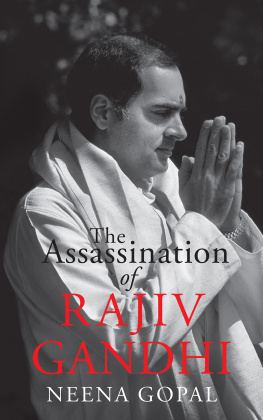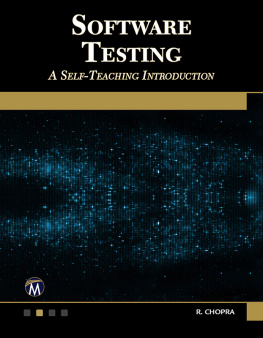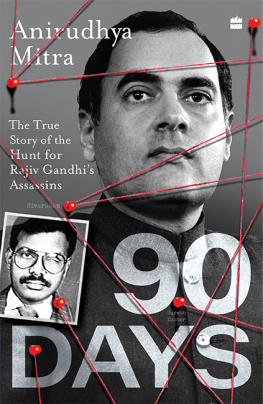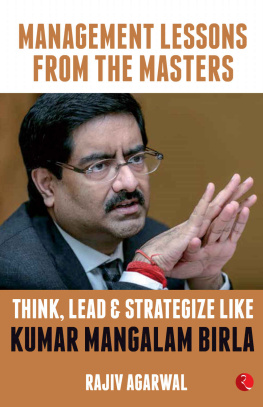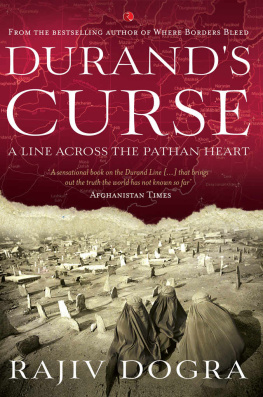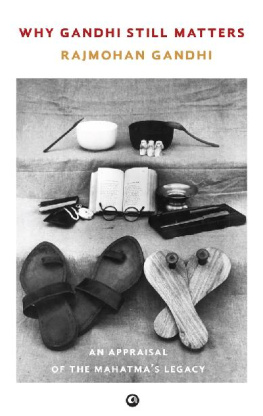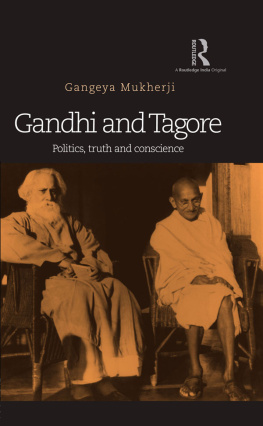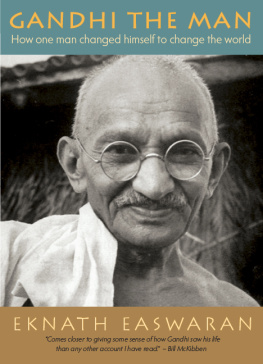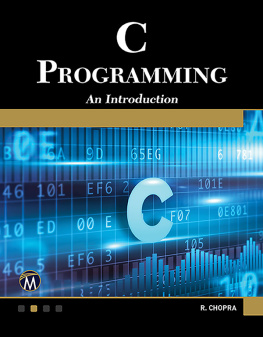Gandhi Rajiv - The assassination of Rajiv Gandhi
Here you can read online Gandhi Rajiv - The assassination of Rajiv Gandhi full text of the book (entire story) in english for free. Download pdf and epub, get meaning, cover and reviews about this ebook. City: Array, year: 2017, publisher: Penguin Books, genre: Detective and thriller. Description of the work, (preface) as well as reviews are available. Best literature library LitArk.com created for fans of good reading and offers a wide selection of genres:
Romance novel
Science fiction
Adventure
Detective
Science
History
Home and family
Prose
Art
Politics
Computer
Non-fiction
Religion
Business
Children
Humor
Choose a favorite category and find really read worthwhile books. Enjoy immersion in the world of imagination, feel the emotions of the characters or learn something new for yourself, make an fascinating discovery.
- Book:The assassination of Rajiv Gandhi
- Author:
- Publisher:Penguin Books
- Genre:
- Year:2017
- City:Array
- Rating:5 / 5
- Favourites:Add to favourites
- Your mark:
- 100
- 1
- 2
- 3
- 4
- 5
The assassination of Rajiv Gandhi: summary, description and annotation
We offer to read an annotation, description, summary or preface (depends on what the author of the book "The assassination of Rajiv Gandhi" wrote himself). If you haven't found the necessary information about the book — write in the comments, we will try to find it.
The assassination of Rajiv Gandhi — read online for free the complete book (whole text) full work
Below is the text of the book, divided by pages. System saving the place of the last page read, allows you to conveniently read the book "The assassination of Rajiv Gandhi" online for free, without having to search again every time where you left off. Put a bookmark, and you can go to the page where you finished reading at any time.
Font size:
Interval:
Bookmark:




PENGUIN BOOKS

PENGUIN BOOKS

RARELY DOES ONE GET A ringside view of a cataclysmic event that changes the course of history in ones own country, let alone a neighbouring onean event which goes on to alter ones life in a hundred different ways. With Rajiv Gandhis assassination, nothing was the same again. Everything changed...
He must have died instantly, falling face down as the bomb detonated, lying there in a mangled, bloodied heap, only his white-and-red scarf and his outsized running shoes intact. His clothes had been blown off his back; only the top of his head was visible.
In a matter of seconds, a fairly standard report about a charismatic politician on the comeback trail, albeit a Gandhi scion, a former prime minister and barely forty-six at the time, was transformedtragicallyinto one of the biggest stories I had ever covered.
It catapulted me from an unknown reporter to someone who would always be known as the last journalist to have interviewed Rajiv Gandhi, minutes before he died. A macabre twist. And not the kind of exclusive I had bargained for.
In the last twenty-five years, every time that night has come up in casual conversation, it has unfailingly recalled the image of Rajiv Gandhi lying on the ground, one outstretched arm sporting the only ostentatious thing about him, the Gucci watch he had been wearing during our hour-long interaction. And yes, his Lotto shoes. As trite as it may sound, it seemed almost as if he had been walking on air that night, exuding confidence that he was on his way back to the prime ministers office.
But there he now lay, cut down in his prime, less than a few feet away from where I stood rooted to the spot, in shock.
I can still recall, in that split second before the explosion, the strange whooshing sound; a series of sputters, followed by a massive, resounding blast accompanied by a great, blinding flash of light. The heat, searing, singeing, knocked me back with its strength, raining death on everyone in front of me.
I didnt know what exactly had happened. I looked around peering through the smoke. There seemed to be no one else in front. Could I really be the last man standing?

Rajiv Gandhi had landed at the Guindy airport, a stones throw from the more well-known facility at Meenambakam, just before sundown that day, piloting his own plane. A clutch of Congress party workers and some journalists from the local newspapers were there, as were bored policemen who didnt bat an eyelid when I walked into the rooms at one end of the arrival lounge at the airport, which had been earmarked for VVIP guests. I checked out the dank interiors, noted paint peeling from the walls, the terrible toilets, the beds with less than clean sheets, and the complete lack of security. This was where the Congress chief was to be billeted that night.
As Rajiv Gandhi walked into the arrival hall, a long, narrow room, he instantly spotted me and waved me to his side. I couldnt tell whether the hundreds of messages I had bombarded every Congress office with, as Rajiv Gandhi criss-crossed the country on the first leg of the campaign, had been conveyed to him. Either way, after endless telephone calls, I had finally tracked down Rajiv Gandhis campaign manager and former diplomat, Mani Shankar Aiyar, who had told me on the night of 20 May to be present at Guindy the next day, and promised he would ensure an exclusive interview during the course of Rajiv Gandhis election halt at Madras (now Chennai). So there I was.
We had met only months before when Rajiv Gandhi, accompanied by his wife, Sonia, had stopped over in Dubai en route to Bombay from Moscow and Tehran. At a reception hosted at the Hyatt Regency by the local Indian community, I had spent time with him discussing the hot topic of the dayhis journey by train from Delhi to Lucknow, just after his Z security had been withdrawn. It was only the second time that I met him but he was chatty and approachable, and spoke at length about the drift in India under the new government and the need to rebuild ties with Moscow and Tehran.
Sonia Gandhi, unlike the self-assured, confident leader of the party she is today, was nervous, fidgety and completely out of her comfort zone, asking me repeatedly whether I was recording the conversation with her. Which I was not.
Rajiv Gandhis pressure on the Chandrashekhar government had ensured that the United States was denied permission to refuel its fighter aircraft in India at the height of the Gulf War. He had been at the receiving end of critical press in the western media for that decision, as it forced the US to continue to refuel from the Indian Ocean island of Diego Garcia. Rajiv Gandhis Congress party would subsequently pull the plug on the minority Chandrashekhar government, setting in motion the May 1991 polls that would claim his life.
Once I got the heads-up from Aiyar, I scrapped plans to cover Jayalalithas campaign in her constituency. In fact, on 20 May, while I was standing outside Jayalalithas tony Poes Garden home in Madras along with a crowd of her die-hard supporters, she had slowed down and stopped her car when she saw me waving and, in response to a request, agreed to let me accompany her the next day when she planned to head to Bodinayakanur, the constituency from where she was standing for elections. She asked me to be there at the crack of dawn.
This was to be the All India Anna Dravida Munnetra Kazhagam (AIADMK) leaders first and immensely successful bid to become chief minister of Tamil Nadu for the first time since the demise of her mentor, the iconic former chief minister of Tamil Nadu, M.G. Ramachandran, MGR.
But in an odd twist of fate that evening, I went from Jayalalithas Poes Garden house to the headquarters of the Dravida Munnetra Kazhagam (DMK) and then to the Congress chiefs office. At the DMK headquarters, the topic of discussion was how much of a threat Jayalalitha posed to the party, and how the Congress must be cut to size as every pre-poll survey indicated that the Congress, pitted against a divided Opposition, wouldnt do too badly nationally. At the Congress party office I met with the then Tamil Nadu Congress Committee head, Vazhapadi Ramamurthy.
There had been stray incidents of violence throughout the day in the city. Without much prompting, Vazhapadi warned me that he had heard from the grapevine there would be violence the next day as well, while confirming, to my great excitement, that Rajiv Gandhi was indeed arriving late the next night and would most probably address a rally, not far from Madras at Sriperumbudur.
Whether he was hinting that there would be some kind of violence at Rajiv Gandhis rally or not, I have never been able to fathomand Ive replayed that conversation in my head a zillion times over. Could he have been warning me off? What did he know? After all, Vazhapadi was the firstand onlyperson to talk, a full twenty-four hours before the assassination, of the dangers posed by the Sri Lankan Tamils who were based in sizeable numbers in Madras and how their very presence in the city and the state was not conducive to peace or safety.
Font size:
Interval:
Bookmark:
Similar books «The assassination of Rajiv Gandhi»
Look at similar books to The assassination of Rajiv Gandhi. We have selected literature similar in name and meaning in the hope of providing readers with more options to find new, interesting, not yet read works.
Discussion, reviews of the book The assassination of Rajiv Gandhi and just readers' own opinions. Leave your comments, write what you think about the work, its meaning or the main characters. Specify what exactly you liked and what you didn't like, and why you think so.

